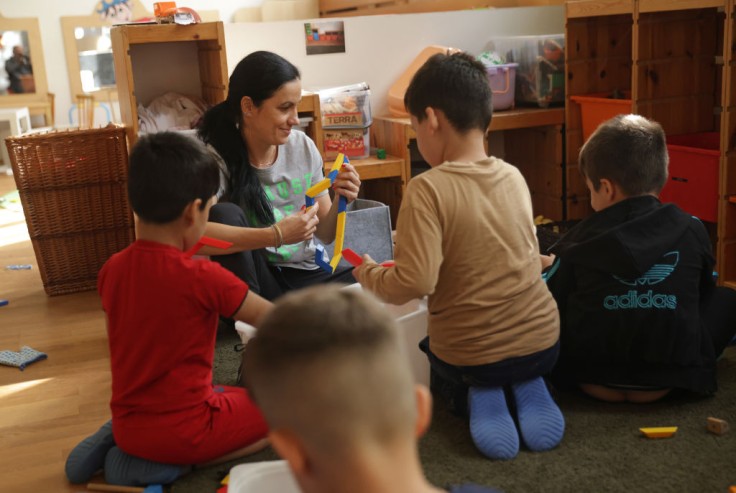
The task of raising the next generation is a daunting one, filled with challenges, opportunities, and a truly unparalleled responsibility.
More than just ensuring our children are well-fed, educated, and safe, we're also shaping tomorrow's leaders, the visionaries who will take the helm of the world and guide it toward a brighter future.
Central to this endeavor is the concept of self-improvement, a lifelong journey that begins in the formative years of childhood. By understanding how to cultivate self-improvement in our children, we can lay the foundation for them to become compassionate, driven, and successful individuals.
The Bedrock of Self-Improvement
Before diving into the 'how', it's essential to understand the 'why'. Why is self-improvement so pivotal to molding tomorrow's leaders?
At its core, self-improvement is about understanding oneself, recognizing areas of strength and weakness, and tirelessly working towards becoming a better version of oneself. This relentless pursuit of growth is what differentiates ordinary individuals from extraordinary leaders.
Tomorrow's leaders, armed with the power of self-improvement, will be better equipped to navigate challenges, inspire others, and make impactful decisions.
Cultivating Self-Improvement in Children
Encouraging Growth Mindset
One of the primary ways to cultivate self-improvement is by fostering a growth mindset in children. This involves teaching them that abilities and intelligence can be developed through dedication, effort, and hard work.
When children understand that failure is not a permanent state but rather an opportunity to learn and grow, they're more likely to embrace challenges and persevere through obstacles. Parents can nurture this mindset by praising effort over innate talent and encouraging children to view mistakes as learning opportunities.
Setting the Right Environment
The environment in which a child grows plays a significant role in their development. Surrounding them with positive influences, whether it's books, mentors, or experiences, can significantly bolster their journey of self-improvement.
Parents should create a space where curiosity is celebrated, questions are encouraged, and learning is a continual process. This environment becomes the fertile ground on which the seeds of self-improvement can flourish.
Leading by Example
As parents, our actions often speak louder than our words. To truly cultivate self-improvement in our children, we must embody the principles of growth and betterment in our own lives.
When children witness their parents actively working on their own self-improvement, whether it's pursuing a new skill, setting personal goals, or seeking feedback, it reinforces the importance of continual growth. In this way, parents become the first role models for tomorrow's leaders.
Encourage Reflection
An essential component of self-improvement is the ability to reflect on one's actions, decisions, and experiences.
Encouraging children to maintain journals, engage in discussions, or simply take a moment to ponder their day fosters a deeper understanding of themselves and the world around them. This reflective practice enables them to recognize patterns, understand consequences, and make more informed choices in the future.
Promote Positive Self-Talk
Healthy self-talk is the internal dialogue that guides our thoughts, feelings, and behaviors. It's about nurturing a positive yet realistic inner voice, one that encourages rather than discourages.
Teaching healthy self-talk to children is a critical aspect of cultivating self-improvement, as it shapes their perception of themselves and their ability to face challenges.
When we teach our children to recognize and challenge negative thoughts and replace them with positive affirmations, we build the psychological resilience that tomorrow's leaders will need.
Celebrate the Journey, Not Just the Destination
While achievements and milestones are essential, it's the journey of self-improvement that truly shapes tomorrow's leaders. Celebrate the small victories, the lessons learned from failures, and the persistence shown in the face of adversity.
By doing so, children learn to value growth over mere outcomes and understand that the journey of self-improvement is ongoing. In conclusion, as parents, our role extends beyond mere caregiving.
We're the primary architects in shaping tomorrow's leaders, a task that requires dedication, patience, and a deep understanding of self-improvement.
By actively seeking to cultivate these qualities in our children, we not only ensure their personal success but also contribute to the creation of a world led by compassionate, driven, and visionary individuals.